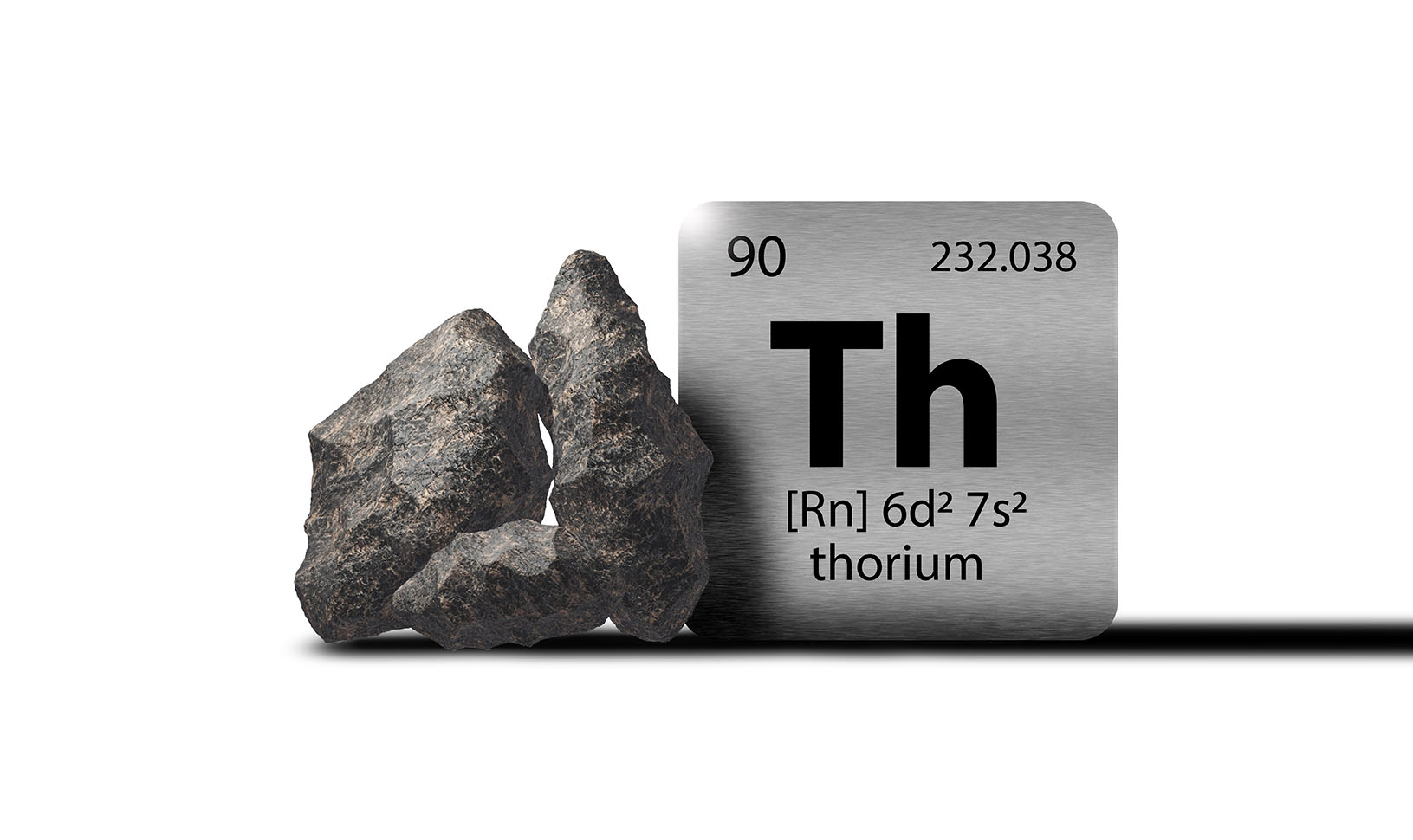
thorium
Definition
Thorium is a chemical element with the symbol Th and atomic number 90. It is a member of the actinide series, which is a group of elements that are radioactive.
Thorium is a silvery-white metal that is soft and malleable. It has a melting point of 1750 degrees Celsius and a boiling point of 4790 degrees Celsius.
Thorium is not found in nature in its pure form. It is found in combination with other elements, such as thorite and monazite.
Thorium is a potential source of nuclear energy. It can be used to produce thorium fuel, which is a type of nuclear fuel that is considered to be safer and more abundant than uranium fuel.
Thorium is also used in a variety of other applications, including:
- Light bulbs: Thorium can be used to make light bulbs that last longer than traditional light bulbs.
- Medical imaging: Thorium can be used to make medical images of the body.
- Industrial applications: Thorium can be used in a variety of industrial applications, such as welding and metalworking.
Thorium is a radioactive element, and it can be harmful to human health if it is not handled properly. However, it is also a potential source of clean energy, and research is ongoing to develop safe and efficient ways to use thorium.
How can the word be used?
Thorium is a relatively abundant element, and it is not as hazardous as uranium.

Different forms of the word
Noun:
a radioactive chemical element with the symbol Th and atomic number 90. It is a soft, silvery-white metal that is found in nature in combination with other elements.
Adjective:
relating to or containing thorium.
Etymology
The word "thorium" comes from the Greek word "Θορ", which is the name of the Norse god of thunder.
The first recorded use of the word "thorium" in English was in 1829.
The word "thorium" is a Modern Latin word, which means that it was created by scientists. It is derived from the Greek word "Θορ", which is the name of the Norse god of thunder.
Here are some other etymological details about the word "thorium":
The Greek word "Θορ" is also the root of the word "thunderbolt", which is a lightning bolt.
The name "thorium" is a reminder of the fact that thorium is a radioactive element, and that it can be used to generate electricity.
Question
How can thorium be used?
AQA Science Exam Question and Answer
Question:
Explain the properties and potential applications of thorium in the context of nuclear energy. Describe how thorium differs from uranium as a nuclear fuel source and its advantages in terms of safety and waste production. Provide an example of a country or project that is exploring thorium-based nuclear technology.
Answer:
Thorium, an element with atomic number 90, holds promise as a potential alternative nuclear fuel source. Unlike uranium, thorium is not directly fissile, meaning it cannot undergo nuclear fission on its own. However, when exposed to neutrons, thorium-232 can be converted into uranium-233, which is fissile and can sustain a nuclear chain reaction.
One advantage of thorium-based nuclear technology is its reduced production of long-lived, highly radioactive waste compared to traditional uranium-based reactors. Additionally, thorium reactors have inherent safety features that make them less prone to catastrophic meltdowns, as they operate at lower pressures and temperatures.
India is a prominent example of a country actively researching and developing thorium-based nuclear technology. The country's Advanced Heavy Water Reactor (AHWR) project aims to utilize thorium as a fuel source in a sustainable and efficient manner. The AHWR design incorporates passive safety systems and has the potential to generate power while producing less long-lived nuclear waste.
The exploration of thorium-based nuclear technology highlights ongoing efforts to find more sustainable and safer alternatives for nuclear energy generation. It demonstrates the importance of innovation and collaboration in addressing global energy and environmental challenges while ensuring the responsible use of nuclear resources.